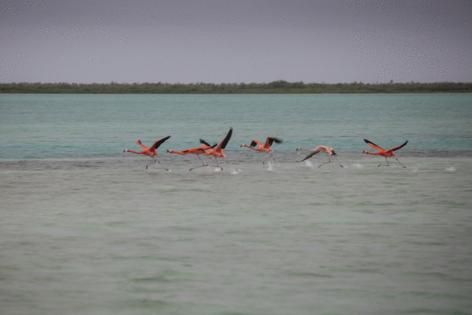Miami judge overturns landmark $30M jury verdict against Expedia on Cuba case
Published in Business News
MIAMI — In an unusual decision, a federal judge overturned the first jury trial verdict in a Helms-Burton lawsuit, which had awarded a Cuban-American Miami man $30 million in damages against each of the booking companies Expedia, Orbitz, and Hotels.com for allegedly trafficking in confiscated property in Cuba.
Decisions to “set aside” jury verdicts are rare, but judges do so when they believe there’s insufficient evidence to support the verdict or the jury did not apply the law correctly.
In an order filed Friday, Francisco A. Moreno, a senior judge at the U.S. District Court for the Southern District of Florida, said that lawyers for a man with a claim on confiscated land in Cayo Coco, a Cuban tourism destination, failed to prove that Expedia Group had trafficked in hotels the Cuban government later built on his property.
Mario Echevarría sued Expedia Group, Inc., but not its subsidiary Expedia Inc., which made the booking in the Cuban hotels. Moreno said Echevarría’s lawyers failed to provide convincing evidence that Expedia Group facilitated the bookings and that the holding company could not be held liable for the actions of its subsidiary.
Moreno also concluded that Orbitz and Hotels.com did not “knowingly and intentionally” traffic in the confiscated properties, a requirement set by the Helms-Burton law, because they did not make bookings after being notified of a potential lawsuit.
The damages against the four companies — Expedia Group, Inc.; Hotels.com L.P.; Hotels.com GP, LLC; and Orbitz, LLC — would have collectively amounted to $119.4 million. The two-week jury trial garnered attention because it was the first time a lawsuit brought under the Helms-Burton Act had progressed to that stage.
The 1996 Helms-Burton Act gives U.S. nationals with claims to property that the Cuban government confiscated without compensation the right to sue companies, American or foreign, that have profited or “trafficked” in such property. Successive U.S. presidents suspended the specific provision, Title III, providing this remedy, until President Donald Trump enacted it in 2019 during his first term.
The dozens of lawsuits that followed had been entangled in legal imbroglios about how to interpret the untested law.
The U.S. Courts of Appeals for the Eleventh Circuit recently ordered another major lawsuit, a case brought against American Airlines by an heir of a claim to Havana Airport facilities, to continue in the lower court. The appeals court said that a U.S. Southern District court erred by concluding that a holder of a claim must be a U.S. citizen both at the time of the confiscation and when acquiring an interest in the claim, which the appeals court said goes against the plain language of the law.
Recently, the Supreme Court hinted it was interested in the matter, after plaintiffs in two separate Helms-Burton lawsuits asked the high court to take their cases, following unfavorable appeals court decisions.
The cases involved a lawsuit by the American company Havana Docks against four cruise companies for the use of confiscated facilities at the port of Havana, and a lawsuit filed by Exxon against Cimex, a Cuban state company part of a military conglomerate, that operates confiscated gas service stations.
The Supreme Court requested that the Department of Justice provide opinions on two specific legal matters related to these two cases: whether plaintiffs must prove they would have currently owned the property in question had it not been confiscated by the Cuban government, and whether Cuban state companies can evade liability under the Helms-Burton Act by claiming foreign sovereign immunity.
The U.S. Department of Justice and the State Department weighed in. They responded in the negative to each question, siding with the plaintiffs, and adding that a favorable resolution to these lawsuits was in the U.S. foreign policy interest.
The Herald reached out to attorneys for the defense and plaintiff and did not immediately hear back.
©2025 Miami Herald. Visit at miamiherald.com. Distributed by Tribune Content Agency, LLC.












Comments